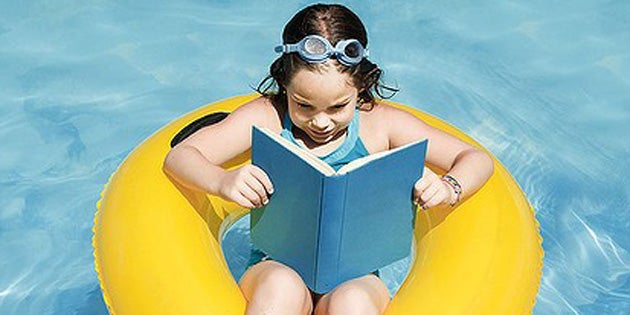Margaret Hagood, associate professor of literacy in teacher education and a mother of four, understands the anxiety some parents feel when trying to provide a fun-filled summer break for their children while keeping their young minds stimulated.
When children take a 10-week break from skills they spent the past 10 months developing, there’s going to be some level of brain drain, Hagood says.
But the fact is, many summer activities and children’s own innate creativity can provide plenty of intellectual engagement. It’s all a matter of perspective, she says.
Here are Hagood’s tips for slowing summer bran drain:
1. Play Alone and in Groups
Time should be spent everyday in some form of intellectual engagement, which includes reading, writing, speaking, listening, viewing, and designing. But intellectual engagement during summer doesn’t have to look like school.
Children need opportunities to engage with content meaningfully alone and with others. Children should have daily quiet time for reading, writing, and drawing. But they should also be encouraged to engage with others. This might mean something like being inspired to write a script and produce a play with a cast of siblings and neighbors after children have seen a related movie or big hit, creating a video game on Scratch (scratch.mit.edu) and sharing it with the world through their online social network, or reading books and participating in online discussion groups or writing reviews and posting them online, or designing a lemonade stand poster. Intellectual engagement should include some alone time and some collaborative time.
RELATED: Read how Hagood encourages educators to use pop culture in teaching.
2. Be Creative With Math
Like the rest of the muscles of the body, the brain should be exercised daily. To participate in daily math problem solving (including numeracy) keeps the mind active. Not only should kids spend a bit of time everyday doing math, they should also realize that they use math in their daily lives (e.g., how many laps can I swim in a certain amount of time, how much change do I give to a customer at the lemonade stand, how can I construct a pulley system to get a bucket up to the top of the treehouse, which card should I play from my hand in a round of “Ninety nine and holding,” and how many steps is it from one end of the block to the other, etc.). Sometimes kids need adults to help them realize that they are using school skills as life skills. Sometimes adults need to model for children how to engage with their environment to see how they are using skills learned in school.
3. Consume and Produce Digital Content
Children need to be encouraged to use technology and digital tools to both consume and produce texts. Not only can children learn content, new vocabulary, and expand ideas from their consumption of watching movies and playing videos/apps, but they should also be encouraged to produce content and share with others their productions, such as making short movies and sending to friends, writing short stories and getting feedback, drawing online, etc.
RELATED: Read the Journal of Adolescent & Adult Literacy, an academic journal edited by Hagood and Co-editor Emily Skinner.
4. Let Boredom Drive Creativity
Kids need to be active and engaged in the summer, but they also need opportunities to solve their own boredom. Often, it is from wrestling with boredom that kids pick up a new book, sketch an amazing picture, and create new interests, all on their own accord. These activities shouldn’t be underestimated. With all of the order and organization in children’s lives now — between school and after-school scheduling of their days — they will benefit in terms of creativity, problem solving, collaboration, and resilience when given time and space to be bored and to solve that feeling on their own. Too often now, adults are so focused on brain drain and summer academic losses, they overcompensate by over-scheduling children’s lives. Children’s independence will flourish if caregivers will allow a bit more wait time for children to overcome their boredom with their own creative ideas. Providing such opportunities are beneficial educational experiences in their own right.





